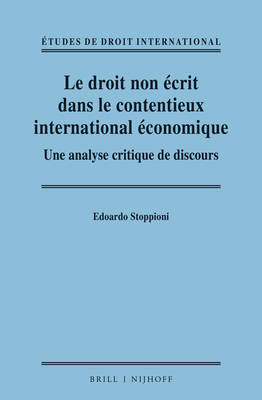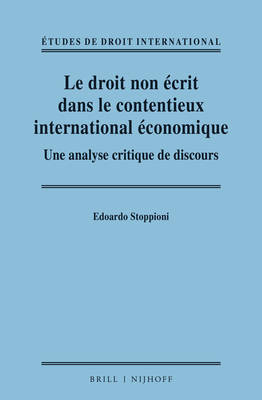
- Afhalen na 1 uur in een winkel met voorraad
- Gratis thuislevering in België vanaf € 30
- Ruim aanbod met 7 miljoen producten
- Afhalen na 1 uur in een winkel met voorraad
- Gratis thuislevering in België vanaf € 30
- Ruim aanbod met 7 miljoen producten
Zoeken
Le droit non écrit dans le contentieux international économique
Edoardo Stoppioni
€ 392,45
+ 784 punten
Omschrijving
This work applies discourse analysis to investment awards and WTO reports to unveil the narratives behind the use of unwritten law. Adopting a CLS and Neo-Gramscian approach, this linguistic inquiry studies the neoliberal and hegemonic structures of international economic adjudication.Cette étude développe une analyse du discours du juge de l'OMC et de l'arbitre de l'investissement portant sur le droit non écrit. En employant une approche critique et néo-gramscienne, elle s'intéresse aux structures néolibérales et hégémoniques du contentieux international économique.
Specificaties
Betrokkenen
- Auteur(s):
- Uitgeverij:
Inhoud
- Aantal bladzijden:
- 696
- Taal:
- Frans
- Reeks:
- Reeksnummer:
- nr. 10
Eigenschappen
- Productcode (EAN):
- 9789004503229
- Verschijningsdatum:
- 9/12/2021
- Uitvoering:
- Hardcover
- Formaat:
- Genaaid
- Afmetingen:
- 155 mm x 234 mm
- Gewicht:
- 1133 g

Alleen bij Standaard Boekhandel
+ 784 punten op je klantenkaart van Standaard Boekhandel
Beoordelingen
We publiceren alleen reviews die voldoen aan de voorwaarden voor reviews. Bekijk onze voorwaarden voor reviews.








